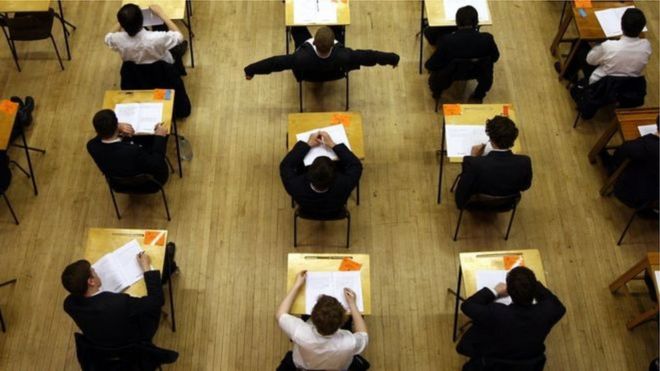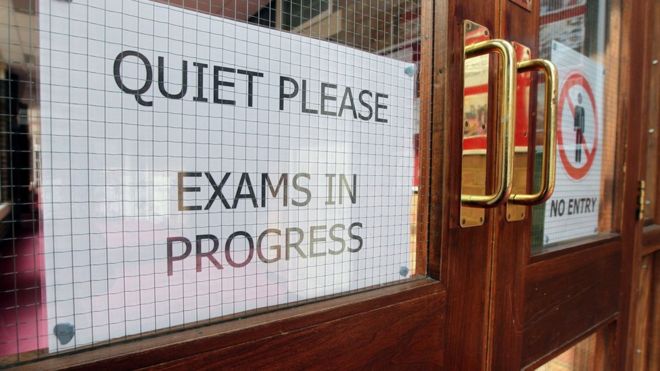 PUPILS in the North of Ireland will be able to appeal their GCSE, AS and A-level results in 2021 if they think an “unreasonable academic judgement” was made by their school.
PUPILS in the North of Ireland will be able to appeal their GCSE, AS and A-level results in 2021 if they think an “unreasonable academic judgement” was made by their school.
That is a change from the appeals process used in 2020.
However in its just-published guidance, CCEA has said an appeal could result in a pupil’s grade going up or down.
Some appeals will be classed as “priority” if a pupil’s place on a higher education course depends on a change to their results.
For the second year in a row, summer exams have been cancelled in the North of Ireland.
That means that schools and teachers will calculate the GCSE, AS and A-level grades to be awarded to their pupils.
Council for the Curriculum, Examinations and Assessment (CCEA) will then review how schools award grades to “ensure fairness and consistency”.
But there will not be a return to the kind of statistical process used by CCEA, which proved controversial in 2020.
CCEA has now published details of the appeals process if a pupil is unhappy with the grade they have been awarded by their school.
That comes after more than 800 teachers, parents and pupils responded to a consultation on how appeals would be handled in 2021.
A pupil will first have to appeal to their school if they think their grade is wrong because the school made an administrative error or did not follow proper procedures in calculating their grade.
But if pupils are still unhappy after that process, they can then appeal through their school to CCEA itself if they think an “unreasonable academic judgement” was made in awarding their result.
A school will be obliged to lodge that appeal to CCEA if a pupil requests it and completes a form outlining their case.
While CCEA will not re-mark a pupil’s work, they will look at whether their grade was right based on the evidence the school used.
“CCEA will then decide whether the grade given to you is reasonable or unreasonable,” guidance from the exams board said.
“A judgement will not be unreasonable simply because you consider that another grade should have been awarded, even if you believe you have supporting evidence.

Return to GCSE and A Level exams in 2022
“If CCEA finds that a grade is unreasonable, we will award a new grade that we consider best reflects the evidence we have seen.”
CCEA will not charge fees for appeals in 2021.
Many schools have used tests provided by CCEA to help them calculate results, although there have been concerns that meant some pupils faced multiple exams when they returned to school after Easter.
Grades will be provided two weeks earlier than usual in 2021, with A and AS-level results on Tuesday 10 August and GCSEs on Thursday 12 August.
The Scottish government recently announced a similar system for how pupils there would appeal qualification grades this summer.
Tags:




